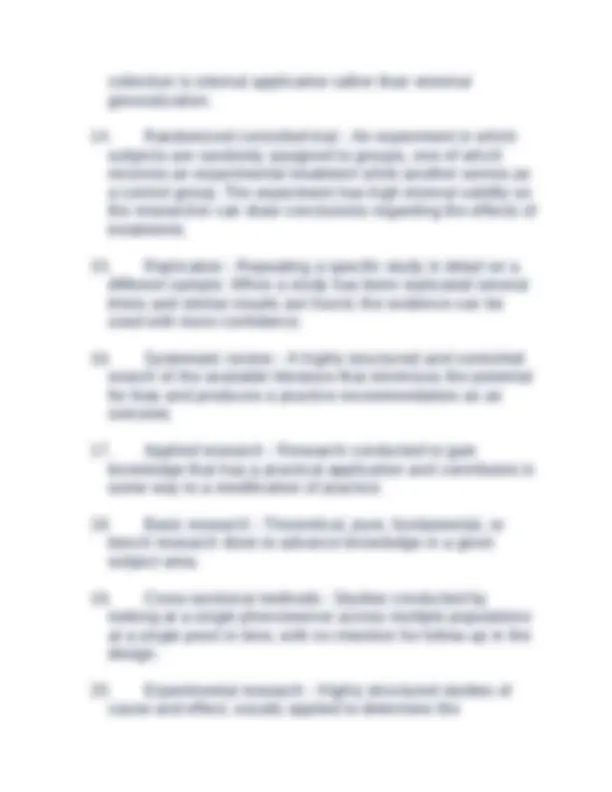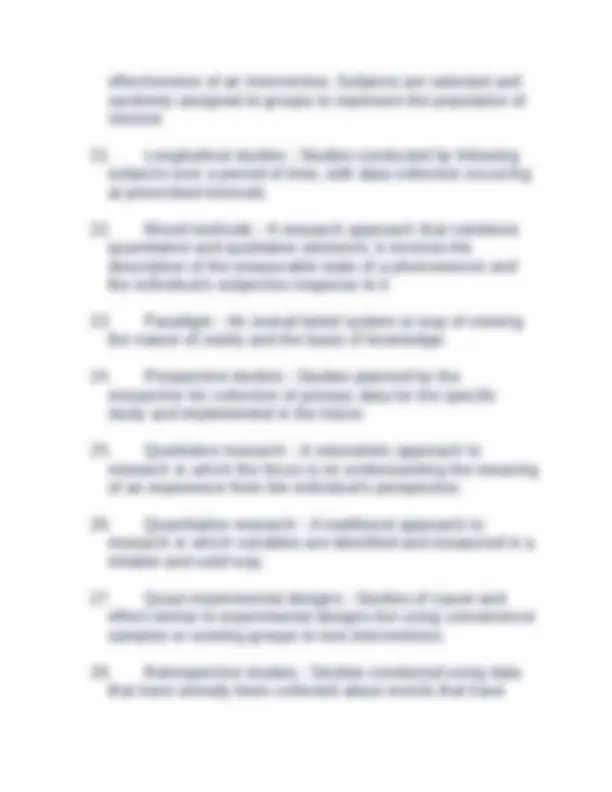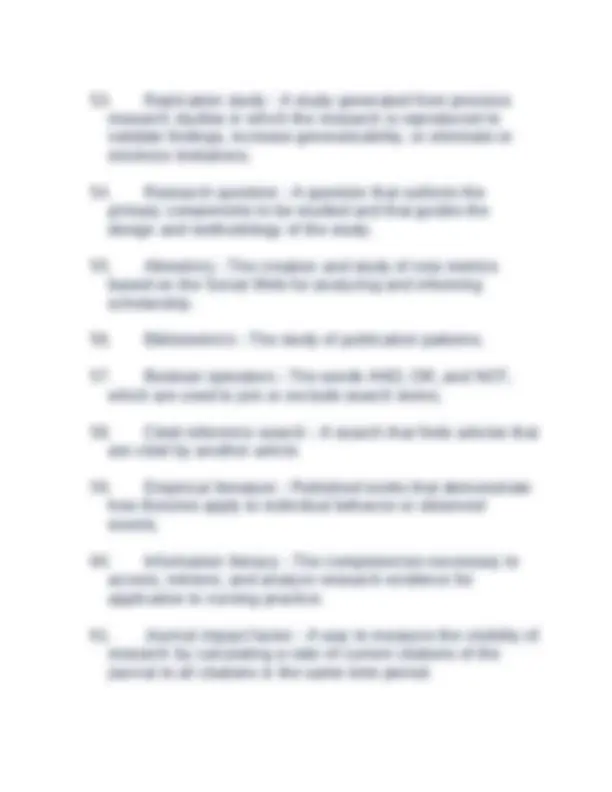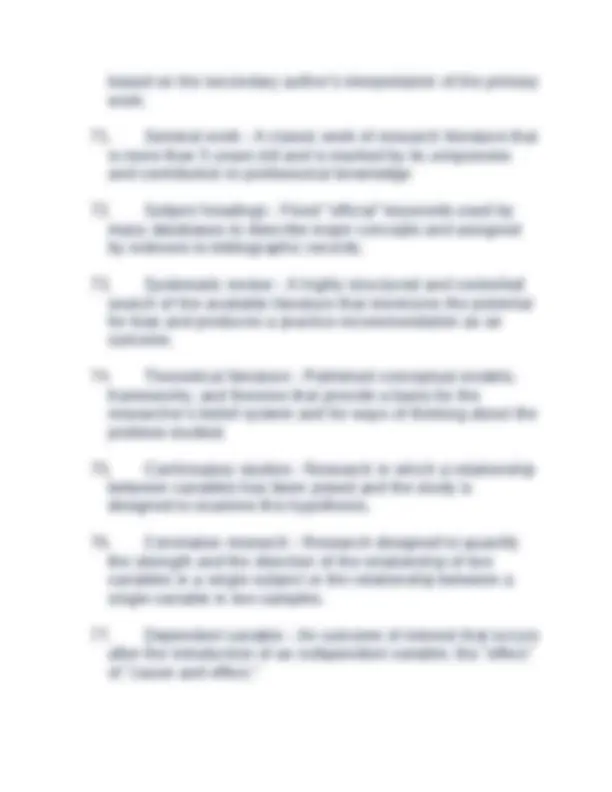









Study with the several resources on Docsity

Earn points by helping other students or get them with a premium plan


Prepare for your exams
Study with the several resources on Docsity

Earn points to download
Earn points by helping other students or get them with a premium plan
Community
Ask the community for help and clear up your study doubts
Discover the best universities in your country according to Docsity users
Free resources
Download our free guides on studying techniques, anxiety management strategies, and thesis advice from Docsity tutors
An overview of key concepts and terms related to nursing research. It covers topics such as evidence-based practice, research ethics, research design, and statistical analysis. The document also includes definitions of important terms such as blinded review, external validity, and informed consent. This resource is useful for nursing students and researchers who are new to the field of nursing research.
Typology: Exams
1 / 13

This page cannot be seen from the preview
Don't miss anything!








6.. Magnet status - A designation for organizations that have characteristics that make them attractive to nurses as workplaces.
effectiveness of an intervention. Subjects are selected and randomly assigned to groups to represent the population of interest.
already happened. Such secondary data were originally collected for a purpose other than the current research.
individuals with cognitive disorders, prisoners, and pregnant women.
based on the secondary author's interpretation of the primary work.